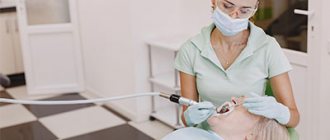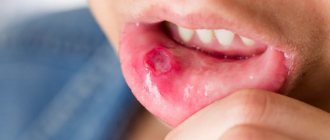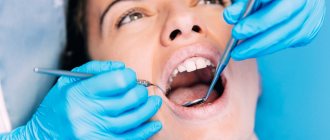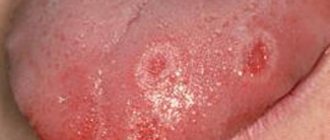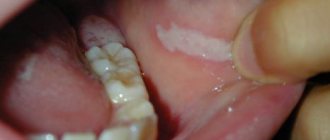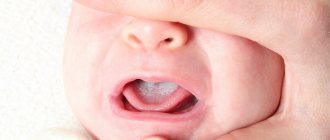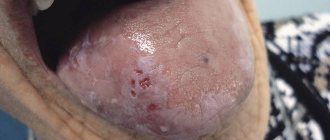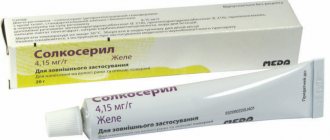One of the most common human diseases, but at the same time the most often ignored, are diseases of the oral cavity. They are often not given due attention until a peak occurs, which is accompanied by severe and almost intolerable pain. And at that time, general health criteria are determined by the condition of the oral cavity, because even “harmless” caries can provoke diseases of the digestive system, endocrine system, central nervous system, and even blood or heart. Therefore, constant oral care, including timely dental treatment, is the most important condition that must be observed in order to have good health. The need for prosthetics should not be neglected, since missing teeth is not only an aesthetic problem, but can also negatively affect overall health.
The most common cause of oral diseases is failure to comply with hygiene standards. Many processes that later develop into a serious illness initially pass without obvious symptoms and may not bother you at all. Nevertheless, even at the initial stage of the disease, its timely detection and prevention is possible. Of course, the treatment of any diseases of the oral cavity is the professional task of a dentist, who can accurately diagnose, determine concurrent diseases and their appropriate therapy.
Prevention of caries
This pathological process of changes in enamel and hard tissues affects up to 98% of the entire population of the planet, so the relevance of preventive procedures for this disease does not need to be confirmed.
Measures to prevent the occurrence and development of caries:
- It is important to monitor your diet: protein foods, foods that contain large amounts of amino acids, trace elements and vitamins (especially calcium and phosphorus), are an excellent non-drug method for preventing caries.
- At the same time, you should limit your carbohydrate intake, give preference to sweeteners, and avoid drinking too hot or too cold drinks.
- Regular and thorough oral hygiene, which is accompanied by the use of toothpastes that have a therapeutic and prophylactic effect.
- The use of various kinds of complexes of vitamins, macro- and microelements, which the body (especially a growing one) needs most.
- Applications, rinses, baths, electrophoresis, which are carried out by various remineralizing agents.
Basics of dental treatment for dental diseases, prevention of complications
Every person should take care of the health of the oral cavity and regularly care for it, provide high-quality hygienic care, including at a professional level. Despite daily brushing and rinsing, routine visits to the dentist should not be neglected. As a rule, most patients come to the clinic when unpleasant symptoms appear, although it is much easier to adhere to simple preventive rules and prevent the development of pathologies.
Oral hygiene
Both adults and children know that they need to brush their teeth regularly. Without daily hygiene procedures, it is impossible to avoid the development of bacterial microflora and the formation of dense plaque, which over time turns into stone. Hygiene involves not only brushing with toothpaste, but also the use of floss, irrigators, and rinses. It is recommended to rinse your mouth with clean water every time after eating.
If you have chronic pathologies, it is better to discuss care procedures with your dentist. It is possible that some methods will be contraindicated, while other methods will show the greatest effectiveness with absolute safety.
Irrigator
This device is used to maintain hygiene at a high level and prevent pathological conditions associated with poor-quality cleansing of hard and soft tissues. There are a lot of models from different manufacturers on the modern market. Which device is best should be discussed with your dentist. Typically the design consists of a reservoir for water and solutions, an irrigation nozzle and a motor for creating jet pressure. Most modern devices are equipped with a button for adjusting the water pressure. What this indicator will be depends on the condition of the oral cavity and periodontal disease in particular.
This method of preventing major dental diseases in adults, children, and adolescents is recommended for use in:
- the presence of orthopedic and orthodontic structures in the mouth;
- halitosis;
- inability to fully clean hard-to-reach areas;
- decreased immunity;
- smoking;
- carrying a child (at different stages of gestation).
An irrigator is considered one of the most effective home care products.
Teeth cleaning
It is impossible to prevent the regular appearance of plaque, since the microorganisms involved in this process are an integral part of the human body. In order to eliminate the negative impact of bacteria on the enamel and deeper layers of dental tissue, it is necessary to take daily care of the oral cavity.
You need to brush your teeth twice a day (after breakfast and before bed). Experts note that the duration of cleaning should be at least 3 minutes. This way, not a single unit will be left unattended. Special scrapers and brushes are purchased for the tongue.
It is very important to choose a quality toothbrush. You should choose accessories that have passed state registration, in sealed packaging, with detailed information presented on it.
To prevent dental diseases, you need to use fluoride toothpastes. They help not only prevent the accumulation of large amounts of plaque, but also strengthen hard tissues.
Dental floss
The brush is not capable of properly cleaning the interdental spaces. The bristles are not small enough to penetrate into the gaps between tightly fitting teeth.
Despite the abundance of products on store shelves, experts agree that the type of floss is not so important if you know how to use it correctly. Beginners should prefer waxed types because they penetrate between teeth more easily and do not tear or disintegrate into fibers.
To facilitate the process, special holders called flossets were created. This option is optimal for people who cannot master the flossing technique, as well as for people with impaired finger mobility. This type of prevention of dental diseases is also used in pregnant women.
Balanced diet
All consumed products must be complete in terms of their quality and composition. The balance of proteins, carbohydrates and fats is the basis of proper nutrition and the prevention of many diseases, including the oral cavity. Carbohydrates create a breeding ground for the development of pathogenic microflora, causing diseases of the teeth and oral cavity. It is also important to have enough solid foods in your diet, including fruits and vegetables, since consuming mostly soft foods can negatively affect the condition of your teeth.
Memo on comprehensive prevention of dental diseases
What every person who cares about oral health needs to remember:
- regular cleaning at home in the morning and evening;
- using floss and mouthwash throughout the day;
- dental examinations every six months;
- high-quality brush, paste and other accessories;
- professional procedures in the clinic, especially if indicated;
- timely treatment of pathologies;
- proper nutrition and a healthy lifestyle.
Toothbrush
An important requirement is its compliance with the anatomy of the oral cavity. A slightly curved and narrow toothbrush head is considered the most suitable option. As for its bristles, it is better if it is presented in the form of sparsely spaced tufts, because too thick bristles, on the contrary, make it difficult to care for your teeth, reducing the effectiveness of cleansing. Don’t forget about the hygiene of the brush itself: after each use, it should be rinsed under running water and stored in a separate glass with the bristles facing up. To maintain high cleaning power and prevent the accumulation of microorganisms, you should change the brush once a month.
Fluoridation of teeth
Fluoridation and deep fluoridation of teeth. Fluoridation is the process of saturating enamel with fluoride ions. The necessity and effectiveness of this procedure has been proven over many years in different countries. The enamel of a child's teeth is weakly mineralized, and therefore most vulnerable to the effects of negative environmental factors, such as plaque, excessive sugar consumption, and poor oral hygiene. Bacteria that are dangerous to teeth live and feed on plaque carbohydrates, secrete dangerous acids, and destroy enamel, the consequences of which are caries. Fluoridation is aimed at strengthening the hard tissues of the tooth and increasing its resistance to external influences, increasing the resistance of the enamel to the effects of acids produced by bacteria during their life. Some areas of the teeth, such as fissures and necks, require special attention, since physiologically they are most vulnerable to the effects of negative factors, therefore it is recommended to carry out deep fluoridation in these places, as it is most effective. It allows deeper penetration of fluoride ions into the tooth surface. The fluoridation procedure helps protect teeth from caries, maintain dental health, minimize the occurrence of caries and its complications, and also create a good mood for the child from every visit to the dentist, since fluoridation is an active prevention of caries.
Fluoridation technique. The teeth are isolated from saliva, after which the process of applying a preparation containing fluoride occurs. Before carrying out this procedure, it is necessary to carry out a procedure to remove plaque. The surface of each tooth is cleaned of plaque using professional pastes or using an Airflow device (if necessary, based on the clinical situation), an ultrasonic scaler. To enhance effectiveness, it is recommended to apply fluoride preparations twice on different visits. Deep fluoridation is one of the types of remineralizing therapy.
Recommendations for this procedure. After the procedure, refrain from eating and drinking for about 2 hours; fluoridation of teeth is recommended every 3 months.
Myths about the dangers of fluoride. Fluoride is harmful to the body. This is true if you consume 4.5 mg of pure fluoride. The concentration and amount of fluoride in preparations intended for fluoridation of teeth are so small that it does absolutely no harm to the body, but its local use in the form of applications brings undeniable benefits for teeth. The process of accumulation of fluoride in tooth tissues occurs most intensively during the formation of the crown and during the period of mineralization in the first years after tooth eruption. Daily fluoride intake of 1.5 to 4 mg is considered safe.
Choosing the right toothpaste
They are divided into two types: hygienic and therapeutic and prophylactic effect. The former only cope with cleansing, providing a refreshing effect without any therapeutic or preventive effects. Toothpastes of the second type are rich in various vitamins, extracts, microelements, enzymes, and also contain salts and medicinal herbal infusions. There is a classification of therapeutic and prophylactic toothpastes:
- containing enzymes;
- with herbal preparations;
- saline;
- with various biologically active additives;
- anti-caries.
All of the above groups of toothpastes can be used every day not only for the purpose of oral hygiene, but also to prevent caries, diseases of the oral mucosa, as well as eliminate the likelihood of periodontal disease and the occurrence of non-carious lesions.
Fissure sealing
Fissure sealing is a method of caries prevention. The relief of the chewing surface of the tooth (fissure) constantly contains food debris with bacteria and their acids, which cause caries. Due to the anatomical structure of the tooth in this area, the percentage of caries in the fissure of the tooth is close to 100%. Sealing fissures in the early stages of tooth development eliminates the occurrence of caries. It is advisable to carry out the procedure before the carious process occurs, since when caries occurs in the fissure enamel, it is necessary to carry out preparation in order to remove the pathological process, which quickly penetrates inside the tooth and causes complications.
Methodology of the procedure. Thorough cleaning of the tooth with paste, Airflow or an ultrasonic scaler, the tooth is isolated from moisture, dried, and then the fissure is sealed. This is a non-invasive fissure sealing technique. The invasive technique involves the stage of preparing the tooth before applying the sealant.
Recommendations. Seal fissures on the chewing surface of all teeth. Every 4-6 months, check the integrity of the sealant on the tooth surface, since when eating and having bad habits (chewing pencils and similar objects), there is a risk of the sealant chipping. If there is a violation of the integrity, chips, or cracks of the sealant, then the carious process in this area begins to arise and progress at a surprisingly fast speed, forming a cavity in the tooth.
Dental irrigators
Externally, they look like an electric toothbrush, which is equipped with a special tip that performs a kind of hydromassage. Water supplied through it under pressure cleanses the tooth surface and hard-to-reach places, including performing cleansing procedures on the cheeks, tongue and gums.
It should be remembered that taking all preventive measures does not relieve you of the need for regular monitoring by a dentist.
Hygiene education
The goal of health education is to achieve voluntary and conscious changes in a person’s attitude towards their health. Of course, changing people's behavior and habits remains a complex and lengthy process: it occurs gradually, in repeated steps, and at first can be reversible.
The maximum effect of hygienic education is achieved if it begins in early childhood, when the child listens and accepts the advice of adults and tries to copy their behavior.
Modern parents are ready to cooperate in the prevention of dental diseases: they themselves turn to doctors with questions about how to properly brush their teeth, what toothbrush and toothpaste to buy, what medications their child needs to prevent caries.
Systematic hygienic education of children and their parents by the staff of preschool and school institutions and dentists will form in children a conscious attitude to hygienic practices and create in every family the prerequisites for a healthy lifestyle according to the principle “it cannot be otherwise.”

